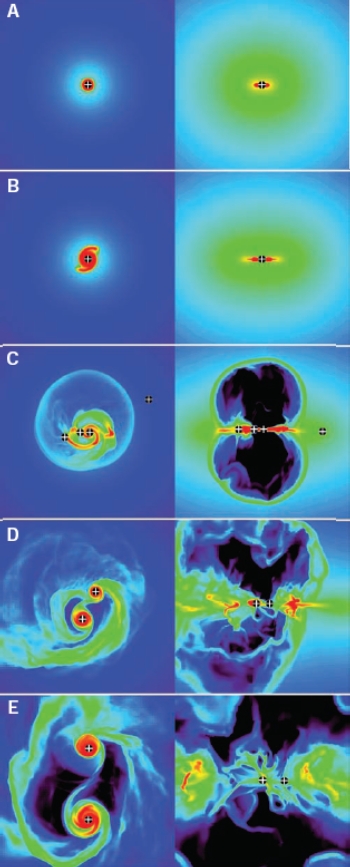| EPoS Contribution |
|
Radiation Feedback and Massive Star
and Star Cluster Formation
Mark R. Krumholz University of California, Santa Cruz, Santa Cruz, USA | |
| I discuss recent adaptive mesh refinement radiation- hydrodynamic simulations of the formation of massive stars and clusters. I show that radiation feedback plays a crucial role in regulating the fragmentation of collapsing clouds, thereby allowing the formation of massive stars and helping to set the IMF. I also demonstrate that radiation pressure does not inhibit the formation of individual massive stars, but it can reduce the efficiency of star cluster formation, ejecting material and leaving protoclusters unbound. | |
 | |
| Caption: Snapshots from a simulation of the collapse of a massive protostellar core, showing initial growth of a disk, instability in the disk, the formation of a bubble due to radiation pressure feedback, fragmentation into a binary system, and finally development of radiation Rayleigh-Taylor instability in the bubble, allowing formation of a 70 Msun binary. | |
| Collaborators: C.F. McKee, UC Berkeley, USA R.I. Klein, UC Berkeley / LLNL, USA S.S.R. Offner, Harvard CfA, USA A.J. Cunningham, LLNL, USA C.D. Matzner, U. Toronto, Canada S.M. Fall, STScI, USA |
Key publication
Suggested Session: Cores and Collapse, Massive Stars |

